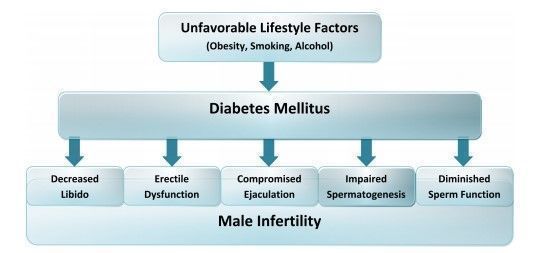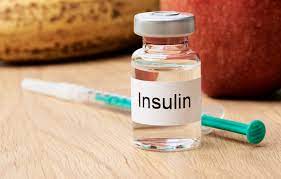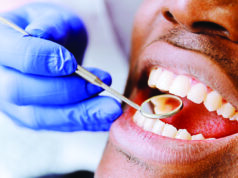
By Beatrice Nakibuuka
Joseph Ssekyanzi, 54, a resident of Kawempe division, Kampala, was diagnosed with diabetes in 2010. He used to frequently get up to urinate at night and would get a blurred vision.
He was advised to go for medical checkup.
“The disease had started affecting my sight. The doctors said I needed to start taking treatment immediately. I was given tablets which I used for some time, but were not very effective because my vision was still blurry,” Ssekyanzi says.
He was then advised to take insulin injection, which is administered to him by his wife every morning on the upper arm, thigh or even on the stomach. Insulin is the hormone that regulates the amount of glucose in the body.
He says: “The injection has been very helpful and my monthly dose costs Shs 150,000, but for others it can be less or even more depending on the type and stage of their diabetes.”
Besides the injection, Ssekyanzi also takes hypertension medication to manage his blood pressure level.

What is diabetes?
Diabetes mellitus is caused by an elevation of blood sugar above normal. It is due to decreased availability or lack of effectiveness of insulin.
Diabetes occurs when your blood sugar is higher than 7mmol/L (126mg/dl) in fasted state or 11.1mmol/l (200mg/dl) 2 hour after a meal. Mmol/L stands for millimoles per litre and mg/dl for milligrams per decilitre.
According to Dr William Lumu, a diabetologist at Mengo Hospital, Kampala, the main types of diabetes are type one and two.
With type one, one’s pancreas does not produce any insulin at all. It occurs in individuals younger than 30 years.
Type two occurs when one’s pancreas does not produce enough insulin or the insulin produced is ineffective.
It occurs in individuals above the age of 40years but recently, there are cases of type two diabetes in younger people due to obesity and physical inactivity.
He says majority of individuals with diabetes and impaired fasting glucose hyperglycemia are not aware and, therefore, go to hospitals with late stage presentation with complications such as blindness, kidney disease, and heart diseases resulting in high morbidity and mortality rates. These complications are also very expensive to treat.
The risk factors
• Anybody can develop diabetes any time irrespective of age, sex, and social status.
• History of diabetes in the family
• Overweight or Obesity or if your waist is 40 inches for a man or 35 inches for a woman
• Unhealthy fatty diets
• Physical inactivity
• Increasing age (40years)
• High blood pressure or history of high blood pressure in your family
• History of high blood glucose during pregnancy
• History of delivering a baby of 4kgs and above
• High fats (cholesterol) in blood
• Poor nutrition during pregnancy
The symptoms: increased volume of urine and frequency of urination, intense thirst, dry mouth, excessive hunger, involuntary weight loss despite a normal or increased appetite, blurred vision, wounds that take long to heal well, sleepiness, and fatigue are the commonest.
Dr Lumu says all these symptoms may not appear at once and in some individuals, these symptoms may be absent, be so slight, or develop slowly.
It is important for one to see a doctor even if it turns out to be a false alarm, rather than do nothing about it.

(Photo/Internet source)
Treatment
Dr Lumu says cost of treating diabetes in the country depends on where one goes for treatment and the stage of the disease. It is free in government-owned hospitals. But in private hospitals and clinics, treatment ranges from Shs 100,000 to Shs 300, 000 and also depending on tests done and medicine given.
“What makes cost exorbitant are the tests done for the complications and medicines for these complications. It is not unusual to have a diabetic having high cholesterol levels, high blood pressure, kidney disease, nerve disease all of which require treatment thus making treatment expensive,” he says.
Presently there is no cure for diabetes. When one is diabetic, he has to be treated for life. The treatment modalities change from time to time depending on the stage of the disease.
Management of diabetes hinges on five pillars; namely dietary modification, physical exercise, continual health education, drugs (oral medicine and insulin), and self-monitoring of blood sugar at home.
Whether one should be on tablets or insulin, should be determined by the doctor.
Dr Lumu explains that management of diabetes does not hinge on sugar control alone, but also control of high blood pressure and blood fats (cholesterol), which are the major causes of complications and death in people with diabetes.
He advises that every diabetic person should have regular blood pressure check and control, checking glycosylated haemoglobin, annual blood cholesterol, kidney function, eye, dental, foot checkup, appropriate referrals and pre pregnancy care.
Complications
If left untreated, diabetes affects nerves, small and big blood vessels in the individual. It is through these effects that a diabetic patient may develop complications like blindness, kidney and heart disease, infertility, stroke, and nerve dysfunction, among others.
Feeding
“We advise a diabetic to eat three meals and snacks during the day. Spreading the food out over the day helps to keep the blood sugars balanced,” Dr Lumu says.
He adds that there may not be a specific diet for diabetic patients, but a healthy and well balanced diet is recommended.
This should include a range of foods from all the four groups: starch foods like matooke, rice, irish potatoes, kalo, posho.
However, potatoes or posho may make your blood sugars rise so high; so, they should be limited in amount, the size of your fist. For katogo, take two fingers of matooke, just control your portion size.
Fruits and vegetables, proteins like beans, peas, groundnuts (4-6 tablespoons when cooked), Lean meat (size of your palm), eggs (four per week) and fish, size of your palm.
The rule is for you to have portion sizes that will help you reach or maintain a healthy body weight. Avoid skipping meals.
A simple way to teach healthy eating is to suggest that the plate be half covered with vegetables, quarterly covered with grains, starches and protein. Eat more vegetables because they are high in nutrients and low in calories.
Fluid intake should range from half to three litres a day. This can be water, tea, soup and all healthy fluids. Be aware of the “no sugar added” notion in supermarket juices.
These contain hidden calories that can fatten you and your liver, making the diabetes difficult to control.
Remember to carefully read the food labels before making your choices. If you suffer from diabetes, avoid bottled juices and opt for whole fresh fruits.
“Do not rely on supplements to make up for an unhealthy diet but rather focus on healthier food choices. Diabetes is preventable if you choose to limit animal fats like ghee, butter, pork oil,” Dr Lumu says.
He also warns that when choosing to fry, do so lightly using little of the vegetable oils but recommends boiled or steamed food.
Diabetes and fertility
According to Dr Edward Tamale -Sali, a fertility specialist at Women’s Hospital International and Fertility Centre, Bukoto, Kampala, uncontrolled diabetes, especially type one, which develops at an early age and requires taking insulin, increases one’s risk of developing infections.
“For women, if the infections occur in the genital tract, they can lead to inflammation of the fallopian tubes and once they are blocked, it becomes hard to conceive,” Dr Sali says, “If they conceive by chance, then the baby is likely to die in the womb before due date because of high blood sugars.”
He adds that men with uncontrolled diabetes also suffer infections in their genital tract especially in the tubes that drain sperms.
The testicles also get inflamed and the sperm count goes down hence infertility.
Dr Sali says infertility caused by diabetes can be permanent if there is complete organ damage, although early diagnosis and treatment can avert it.
Where there is complete organ damage, a couple may need to use In Vitro Fertilization (IVF) in case they want to have children.






















